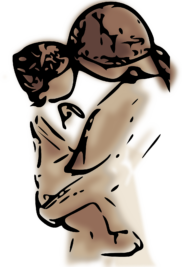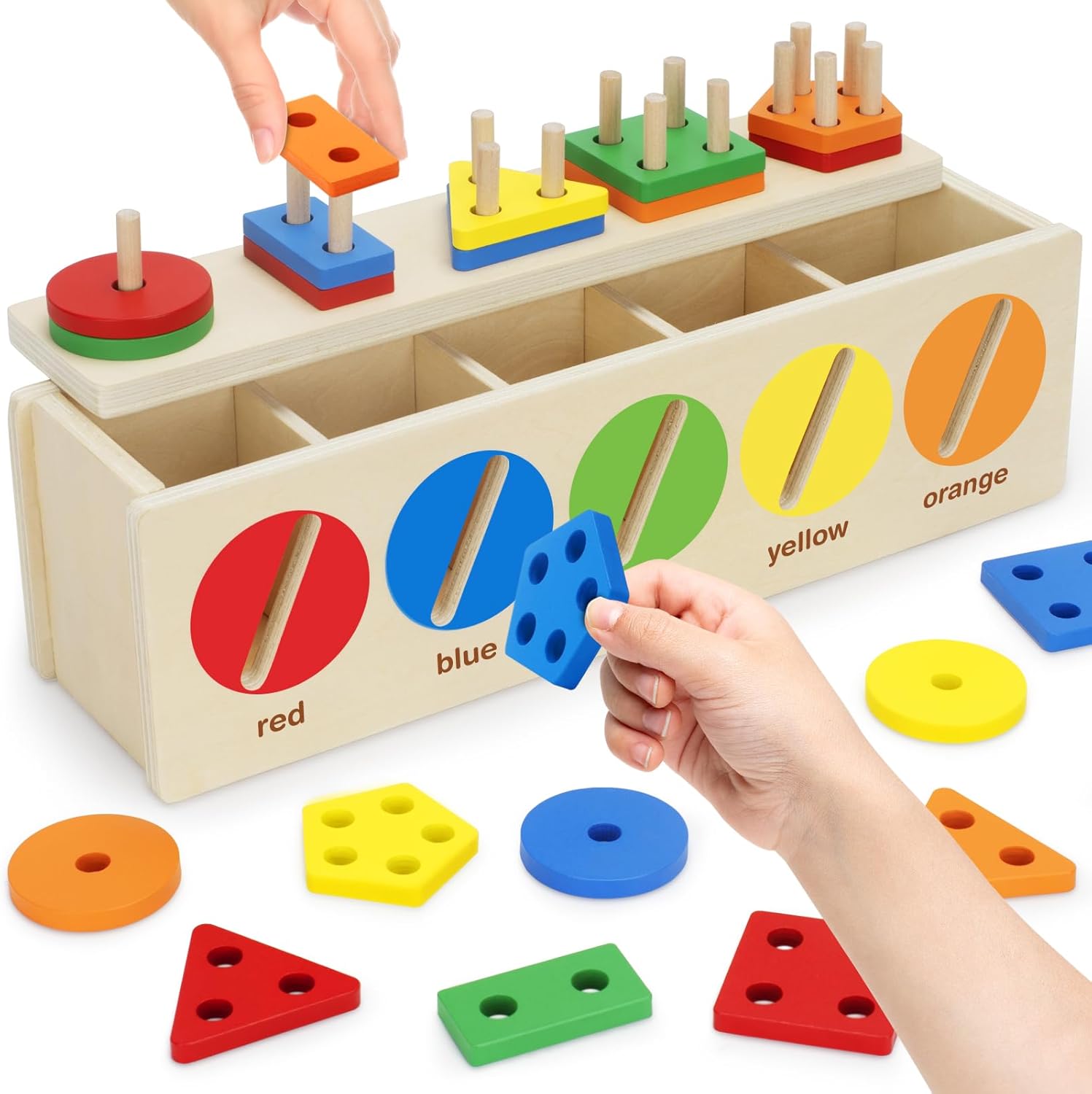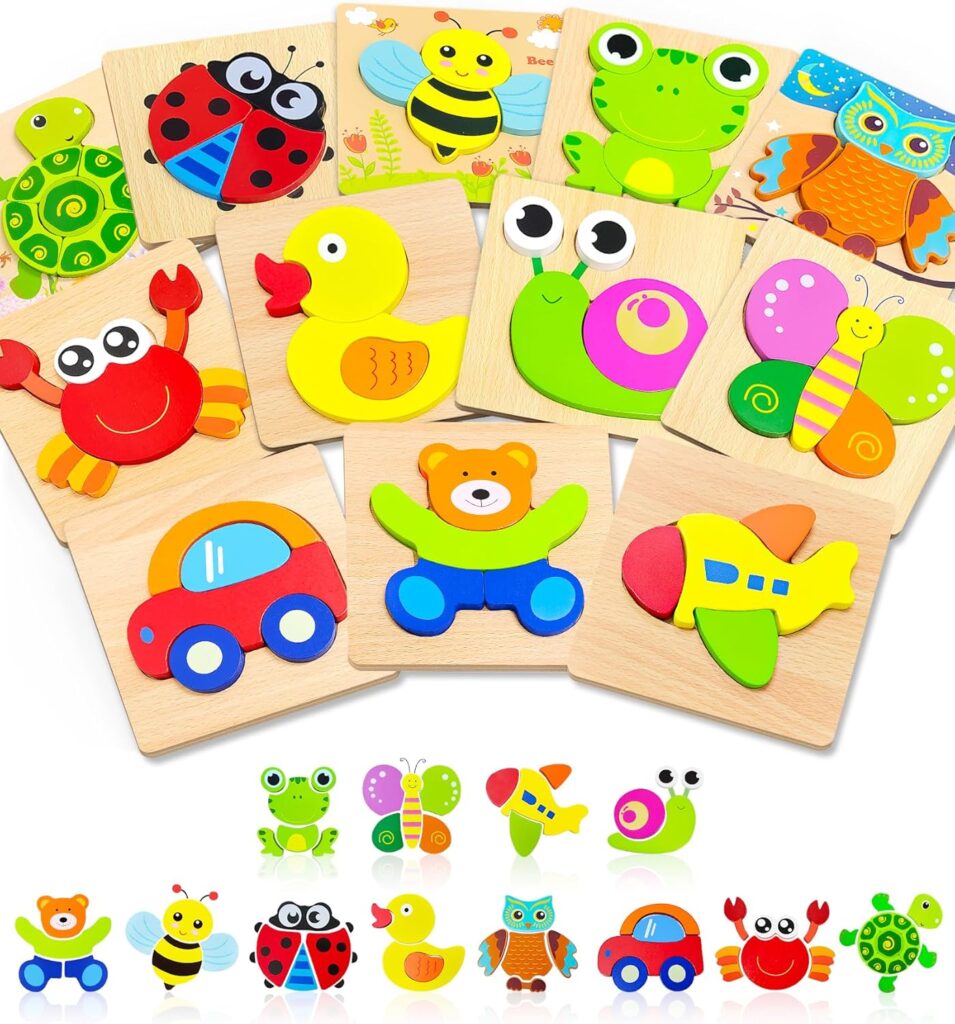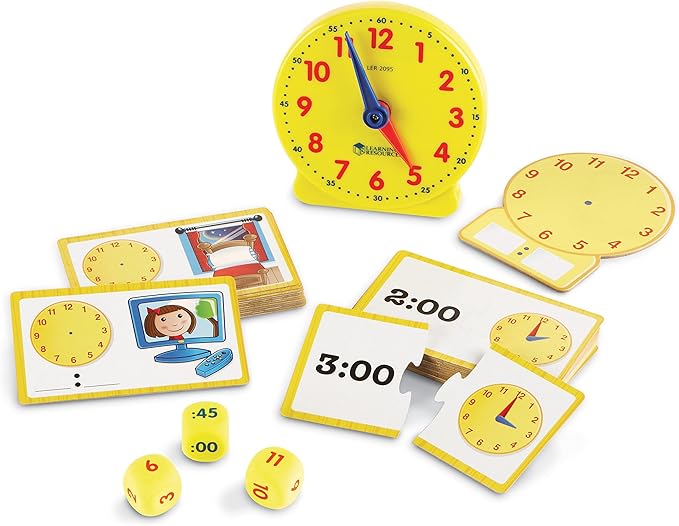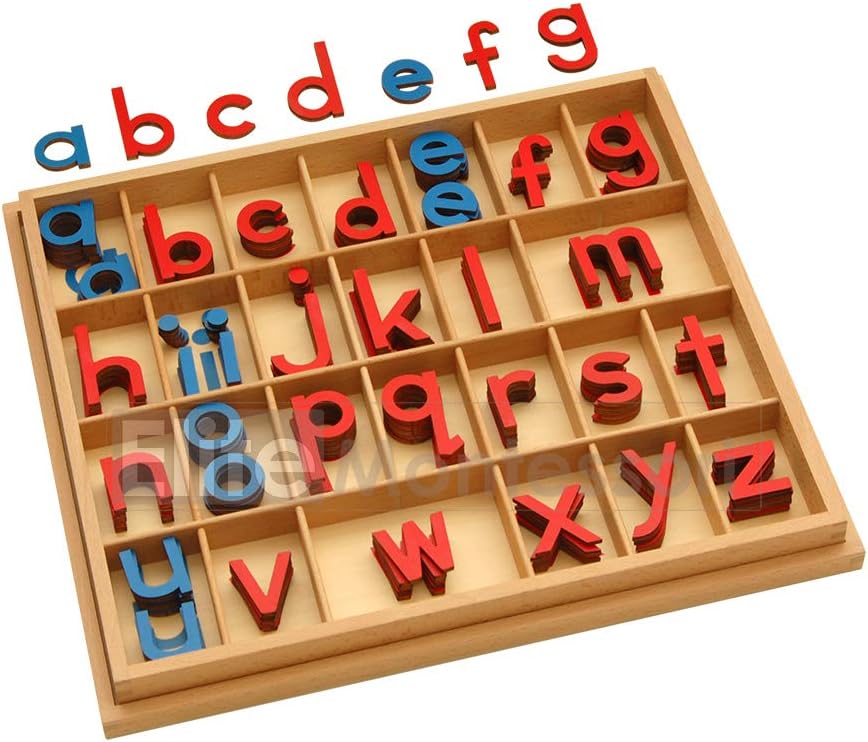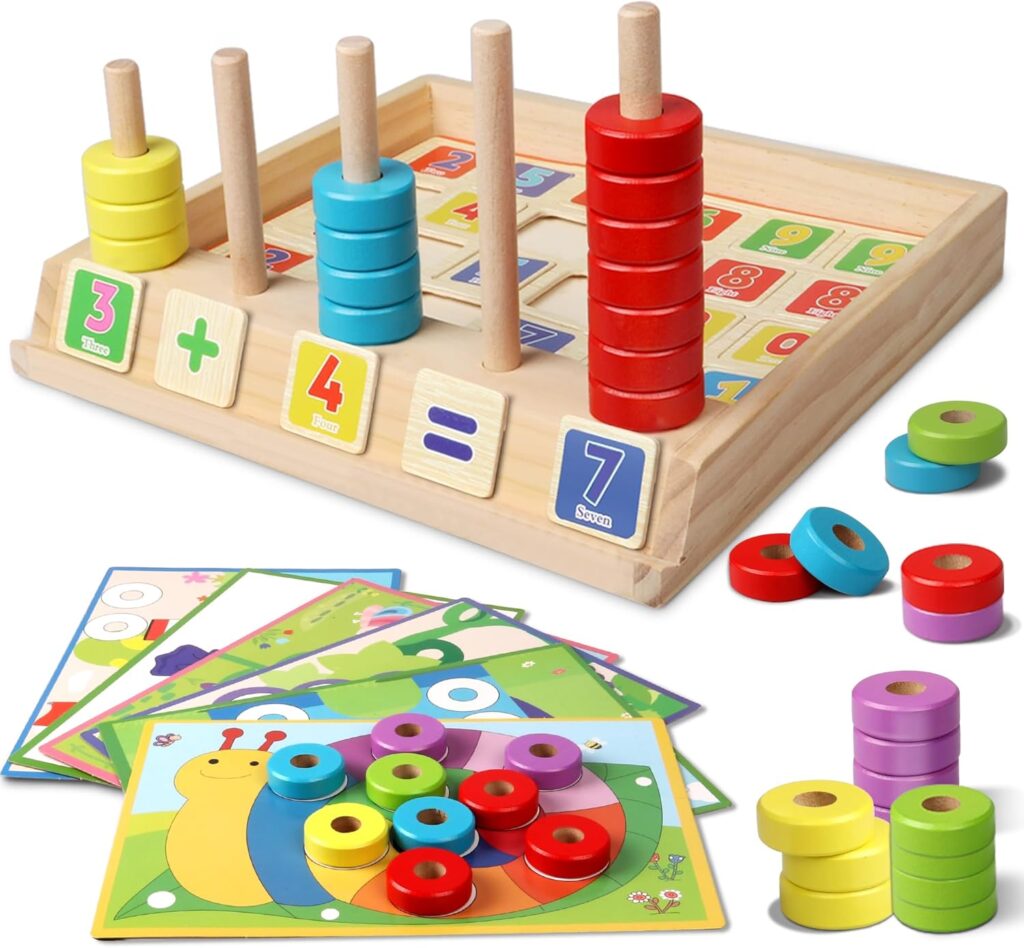Montessori Education: A Guide for Parents
Montessori education is more than just a method of teaching; it is an approach that puts your child’s development at the center, nurturing their natural curiosity and joy of learning. But what exactly is Montessori, and why is it so appealing to parents? In this article, you’ll learn what Montessori is all about and how you can incorporate it into your child’s daily life..
What is Montessori?
The Montessori approach was developed by Italian physician Maria Montessori. It is based on the idea that children are naturally curious and eager to learn. The focus is on fostering each child’s individual talents and interests by providing them with a prepared environment that supports their development.
The Three Core Principles of Montessori Education:
Independence: Children should learn to do things on their own and solve problems independently (e.g. Sorting & Stacking Toys)
Individuality: Every child is unique and learns at their own pace.
Prepared Environment: The environment is designed to spark curiosity and support the learning process
Benefits of Montessori Education
1. Building Confidence and Self-Esteem
Montessori children learn early on to make decisions and take responsibility for their actions. This builds their confidence and encourages independent thinking.
2. Encouraging Creativity
Montessori materials are designed to foster creativity and problem-solving skills. Children learn through play and experiment with different solutions.
3. Individualized Learning
Unlike traditional classrooms, Montessori education tailors learning to each child’s level. This prevents stress and overwhelm.
How Parents Can Apply Montessori at Home
You don’t need to enroll your child in a Montessori school to benefit from this approach. Here are some tips to bring Montessori principles into your home:
1. Create a Prepared Environment
- Ensure your child can easily access toys and materials.
Use child-height shelves and provide a limited selection of purposeful toys.
2. Encourage Independence
Let your child take on simple tasks like setting the table or watering plants (e.g. Teaching Clocks).
Give your child time and space to try things on their own (e.g. Teaching Clocks).
3. Choose Montessori Materials
Montessori materials are specifically designed to develop certain skills. Examples include wooden puzzles, sorting and stacking games, or educational toys that teach colors, shapes, and numbers.
Here are some Montessori materials we recommend:
Why Montessori is a Great Choice for Your Child
The Montessori method offers a child-centered approach to education that fosters independence, creativity, and a lifelong love of learning. With hands-on activities and self-paced exploration, children develop critical thinking skills and confidence in a supportive, nurturing environment. Montessori classrooms encourage collaboration, respect for others, and a deep understanding of core subjects, making it an excellent choice for holistic development.
A baby toddler abacus is a classic Montessori-inspired educational tool designed to foster early learning through hands-on play. It encourages fine motor skills, hand-eye coordination, and basic counting concepts. With its colorful beads, the abacus provides a tactile and visual way for toddlers to explore numbers, patterns, and colors, aligning with the Montessori philosophy of self-directed, sensory-rich learning. Simple yet engaging, this tool helps children build a strong foundation for future math skills in a fun and natural way.
If you want your child to grow up in an environment that supports their natural curiosity and love of learning, Montessori education is an excellent choice. Whether you fully embrace Montessori at home or just integrate certain elements, you’ll see how positively this method impacts your child’s development.
Want to learn more? Check out our recommended Montessori products and resources to start your Montessori journey today!
[Affiliate links support our work. Thank you for your support!]
